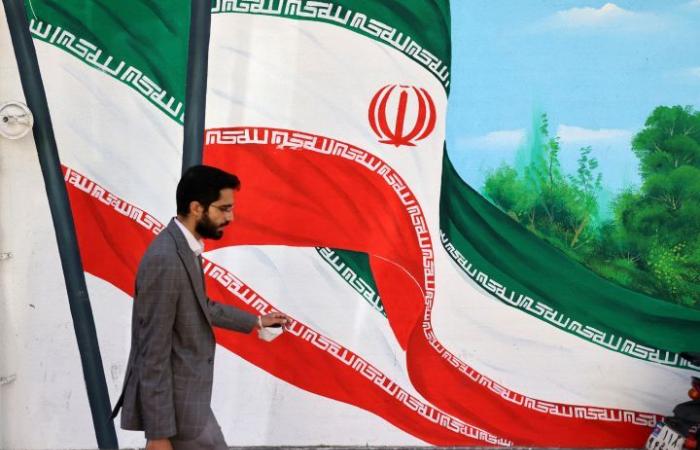Iran executed a member of the country's Jewish community on Monday following his conviction for murder, according to an NGO, amid growing tensions between Israel and the Islamic Republic.
Arvin Ghahremani was hanged in a prison in the western Iranian city of Kermanshah after being convicted of a murder committed during a street fight, according to Iran Human Rights (IHR), based in Norway.
“Amid threats of war with Israel, the Islamic Republic executed Arvin Ghahremani, a Jewish Iranian citizen,” IHR director Mahmood Amiry-Moghaddam said, adding that the court case had “significant flaws.” .
“Arvin was Jewish and institutionalized anti-Semitism in the Islamic Republic undoubtedly played a crucial role in the execution of his sentence,” he added.
According to the NGO, Arvin Ghahremani was accused of killing a man in a street fight two years ago. His family says he was defending himself from a knife attack.
His mother had requested that he be pardoned and her family had urged that of the victim to accept financial compensation provided for by Iranian law (qesas).
The Iranian judiciary's Mizan Online website confirmed the execution, saying the victim's family had “refused to give consent” to such an agreement.
The site, which does not mention the condemned man's confession, affirms that the murder, which occurred in November 2022, was linked to a money dispute. Ghahremani's lawyers called for a new trial three times, in vain.
The different, contradictory sources describe him as being between 18 and 21 years old at the time of the events.
Jews in Iran
The Jewish community, once large in Iran, a country dominated by Shiite Islam, has shrunk since the Islamic revolution of 1979. But it remains the largest in the Middle East, outside Israel.
In recent years it was estimated at around 20,000 people. But the latest report from the US State Department on religious freedom showed 9,000 Jews still present in Iran, citing figures from the Jewish Committee of Tehran, an official organization.
Tehran, however, rejects any accusation of anti-Semitism, affirming that the Jewish community is recognized by the Constitution, enjoys freedom of worship and has a member elected to Parliament to represent them.
If Jewish Iranians were executed in the aftermath of the revolution, the execution of a Jewish Iranian is unprecedented in recent years and comes at the heart of extreme tensions between Iran and Israel in recent months.
According to IHR, at least 654 people have been executed since the start of the year, including 166 during the month of October. Figures interpreted by opposition movements as an attempt to intimidate opponents of the regime.
Strikes and ripostes
On October 26, Israeli warplanes carried out strikes on military sites in Iran, in retaliation for Iranian missile attacks against Israel on October 1.
Iran reported “limited damage” and four soldiers and a civilian killed, but several experts contacted by AFP spoke of precise and effective strikes on Tehran's defensive and offensive capabilities.
Iran itself presented its October 1 attack as a response to the assassination of leaders of the Islamist movements Hezbollah in Lebanon and Hamas in the Gaza Strip in recent months.
These two movements are allies of Iran, within what it calls “the axis of resistance” against Israel, with the Houthi rebels of Yemen and the pro-Iranian Shiite groups based in Iraq and Syria. .
Israel/Iran tensions have pushed Washington to deploy B-52 strategic bombers in the region, a maneuver deemed “destabilizing” on Monday by the spokesperson for the Iranian Ministry of Foreign Affairs, Esmaïl Baghaï.
Iran does not recognize the existence of Israel and Israeli flags are regularly burned during protests.
With Stuart WILLIAMS / AFP






